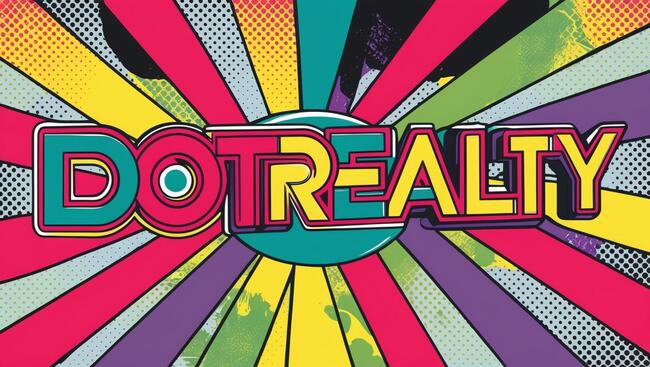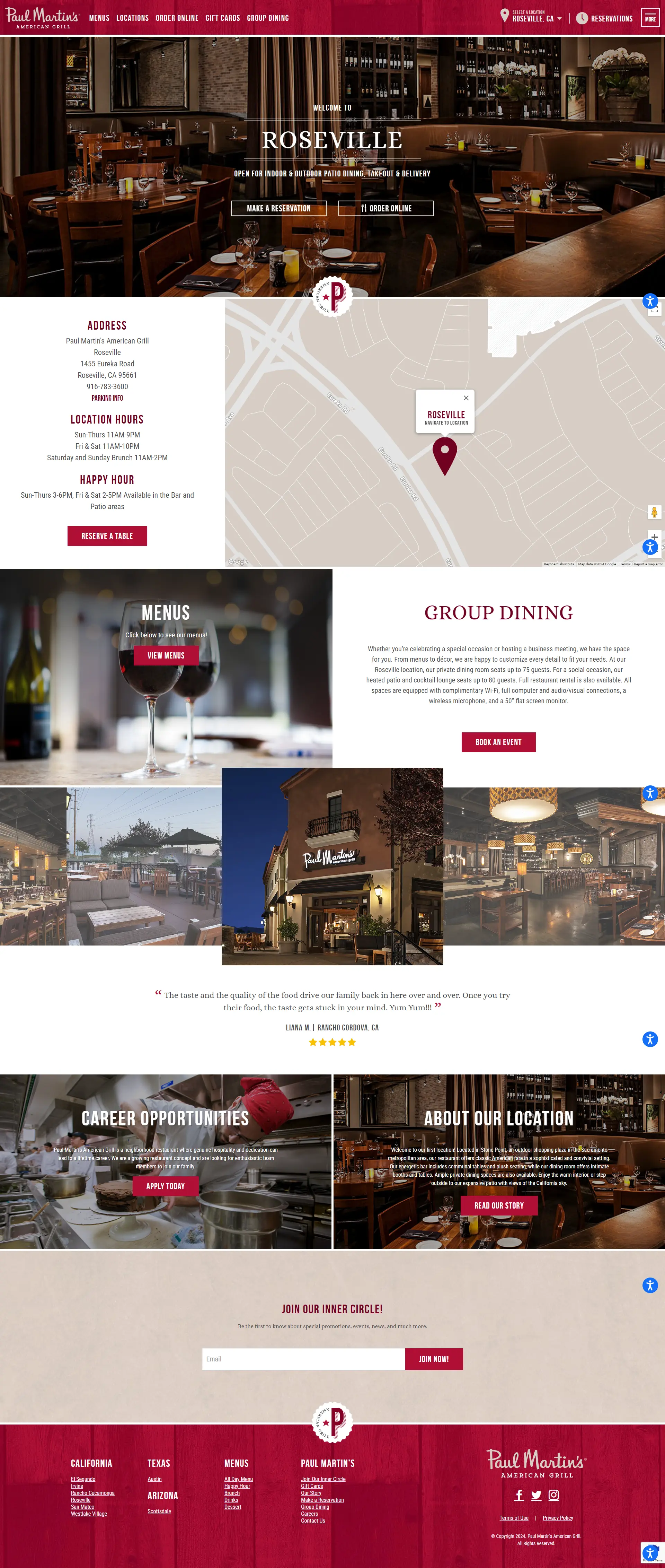Executive Summary (TL;DR)
Onboarding is one of the most critical phases in an agent’s career—and one of the most overlooked by brokerages. A well-structured 30-60-90 day plan can be the difference between a thriving agent who contributes to your bottom line and one who quietly exits the industry within months.
This post provides a comprehensive framework for brokers to onboard new agents with clarity, consistency, and impact. From day one to day ninety, we’ll walk through the essential milestones, training strategies, and cultural touchpoints that drive agent success and retention.
Key Takeaways
- A 30-60-90 day onboarding plan accelerates agent productivity and confidence.
- Structured onboarding improves retention and reduces the cost of turnover.
- Brokers should focus on systems, mentorship, marketing, and accountability.
- Each phase of onboarding should have clear goals, actions, and measurable outcomes.
- The most successful brokerages treat onboarding as a strategic growth initiative—not a checklist.
This blog post is part of a larger strategy outlined in our flagship resource: The 2025 Guide to Real Estate Agent Recruitment. In that guide, we break down the entire recruitment funnel—from crafting your brokerage’s value proposition to building high-converting landing pages and nurturing agent leads. If you’re serious about scaling your team with the right people, this is your blueprint.
About the Author
Stu Hill is the CEO of MNKY Agency, a leading digital marketing and recruitment consultancy serving the real estate industry. With over two decades of experience helping brokerages scale through smart systems and standout branding, Stu brings a unique blend of tech-savvy strategy and boots-on-the-ground insight to agent recruitment and retention.
He’s worked with hundreds of brokerages across the U.S. and Canada, helping them attract top talent, streamline onboarding, and build high-performing teams. His work has been featured in industry publications, webinars, and national conferences.
At MNKY Agency, Stu leads a team that specializes in agent recruitment marketing, onboarding automation, and brokerage growth strategy.
📬 Welcome to Stu’s Corner
Looking for more insights like this? Stu’s Corner is your go-to hub for real estate recruitment strategy, marketing tips, and brokerage growth playbooks. Whether you’re scaling your team or refining your systems, you’ll find actionable advice and fresh perspectives from the front lines of the industry.
How to Create a 30-60-90 Day Real Estate Agent Onboarding Plan
Bringing on a new real estate agent is more than just handing over a login and a desk—it’s the beginning of a relationship that can either flourish or fizzle. In today’s competitive market, brokerages that win aren’t just recruiting talent—they’re developing it. That starts with a strategic onboarding process that sets clear expectations, builds confidence, and drives early wins. In this post, we’ll break down a proven 30-60-90 day onboarding framework designed to help brokers turn new agents into productive, loyal members of the team—fast.
Why Onboarding Matters More Than Ever
The real estate industry is evolving fast—technology, consumer expectations, and market dynamics are shifting the way agents do business. In this environment, brokerages can no longer afford to take a passive approach to onboarding. The first 90 days of a new agent’s journey are make-or-break, and how you support them during this time directly impacts their long-term success—and your bottom line.
The Cost of Poor Onboarding
Let’s be blunt: agent turnover is expensive. Between recruiting costs, lost productivity, and the time it takes to ramp up a replacement, a single failed hire can cost your brokerage thousands. According to industry estimates, nearly 80% of new agents leave the business within their first year—and a lack of support is one of the top reasons why.
Poor onboarding leads to:
- Confusion about expectations and processes
- Low confidence and motivation
- Missed opportunities to generate early wins
- Weak cultural alignment
- Higher attrition rates
The Opportunity in the First 90 Days
On the flip side, a structured onboarding plan creates momentum. It gives new agents a roadmap, builds their confidence, and helps them feel like part of something bigger. When agents feel supported, they’re more likely to stay, produce, and refer others to your brokerage.
A 30-60-90 day plan:
- Sets clear expectations and goals
- Provides consistent training and mentorship
- Encourages early wins and client engagement
- Builds loyalty and cultural alignment
- Creates a repeatable system for scaling your team
Why Now?
In 2025, the competition for talent is fiercer than ever. Agents have more choices, and they’re looking for brokerages that offer real value—not just a desk and a login. Onboarding is your first and best chance to prove that your brokerage is different.
If you want to recruit top talent and keep them, you need to deliver an onboarding experience that’s intentional, inspiring, and results-driven.
The 30-Day Plan: Orientation & Foundation
The first 30 days are all about laying the groundwork. This is where you set the tone, establish expectations, and give your new agent the tools and confidence they need to hit the ground running. Think of this phase as onboarding meets immersion—it’s not just about paperwork and logins, it’s about culture, systems, and mindset.
Primary Goal:
Get the agent fully integrated into your brokerage’s systems, culture, and daily rhythm.
Key Objectives for Days 1–30
✅ 1. Welcome & Cultural Integration
- Office tour and introductions to key team members.
- Assign a mentor or onboarding buddy.
- Share your brokerage’s mission, values, and unique selling proposition.
- Invite them to attend team meetings, trainings, and social events.
✅ 2. Tech & Tools Setup
- Set up access to:
- CRM
- MLS
- Transaction management software
- Email and calendar
- Internal communication tools (Slack, Teams, etc.)
- Provide a tech walkthrough or video tutorials.
- Ensure they know who to contact for tech support.
✅ 3. Training & Education
- Schedule foundational training sessions:
- Brokerage policies and procedures
- Compliance and legal basics
- Buyer/seller consultation scripts
- Listing presentation walkthrough
- Encourage shadowing top agents or team leads.
✅ 4. Personal Branding & Marketing Setup
- Help them create or refine:
- Agent bio
- Headshots
- Business cards
- Social media profiles
- Email signature
- Launch their first social media post or introductory video.
✅ 5. Goal Setting & Accountability
- Set clear expectations for the first 30 days.
- Establish daily and weekly activity goals (e.g., number of calls, open houses, training hours).
- Schedule weekly check-ins with their manager or mentor.
Milestones to Hit by Day 30
- ✅ Completed onboarding checklist
- ✅ Attended at least one team meeting or training
- ✅ Shadowed a top-performing agent
- ✅ Scheduled or hosted first open house
- ✅ Created and published first marketing piece
- ✅ Had first client conversation or lead interaction
Pro Tip:
Use a shared onboarding tracker or dashboard to monitor progress. This keeps both the agent and their manager accountable and ensures nothing falls through the cracks.
The 60-Day Plan: Skill Building & Lead Generation
With the foundation in place, the next 30 days are all about momentum. This is where your new agent begins to apply what they’ve learned, develop their sales skills, and start generating business. The goal is to move from passive learning to active doing—with support, structure, and accountability.
Primary Goal:
Help the agent build confidence through real-world experience, lead generation, and skill development.
Key Objectives for Days 31–60
✅ 1. Prospecting & Lead Generation
- Introduce lead sources (brokerage leads, referrals, farming, FSBOs, expireds).
- Provide scripts and templates for:
- Cold calling
- Door knocking
- Sphere of influence outreach
- Encourage daily prospecting blocks (e.g., 2 hours/day).
- Launch a simple lead gen campaign (email, social, or postcard).
✅ 2. Sales Skills Development
- Conduct weekly role-play sessions:
- Buyer consultations
- Listing presentations
- Objection handling
- Offer training on:
- Pricing strategies
- Market analysis
- Negotiation techniques
✅ 3. Transaction Practice
- Walk through a mock transaction from contract to close.
- Review real contracts and disclosures.
- Assign a transaction mentor or coach.
✅ 4. Marketing & Branding Expansion
- Help them create:
- A monthly email newsletter
- A basic content calendar for social media
- A local market update video or blog post
- Encourage participation in community events or networking groups.
✅ 5. Accountability & Coaching
- Continue weekly check-ins with their manager or mentor.
- Review KPIs:
- Contacts made
- Appointments set
- Listings taken
- Pipeline value
- Adjust goals based on performance and feedback.
Milestones to Hit by Day 60
- ✅ Hosted at least one open house independently
- ✅ Secured first buyer or listing client
- ✅ Submitted or negotiated first offer
- ✅ Created and launched a lead generation campaign
- ✅ Participated in at least one role-play or sales training session
- ✅ Built a basic pipeline of active leads
Pro Tip:
Celebrate small wins. Whether it’s a first showing, a great conversation, or a new lead—recognition builds momentum and reinforces the behaviors you want to see.
The 90-Day Plan: Independence & Momentum
By the 90-day mark, your new agent should be transitioning from learning mode to growth mode. This is the phase where they begin to operate more independently, take ownership of their pipeline, and start contributing meaningfully to your brokerage’s production. Your role now shifts from trainer to coach—supporting their momentum, refining their skills, and helping them plan for long-term success.
Primary Goal:
Empower the agent to operate independently, close deals, and build a sustainable business pipeline.
Key Objectives for Days 61–90
✅ 1. Advanced Sales & Negotiation Training
Now that they’ve had some real-world experience, it’s time to level up. Offer deeper training on pricing strategies, competitive market analysis, and negotiation tactics. Encourage them to review past client interactions and identify areas for improvement.
✅ 2. Pipeline Development & Management
Help them build a system for tracking and nurturing leads. Introduce tools like pipeline dashboards, follow-up automation, and lead scoring. Review their current pipeline and coach them on how to prioritize and convert.
✅ 3. Business Planning & Goal Setting
Guide them through creating a 90-day business plan that includes:
- Lead generation strategies
- Marketing calendar
- Production goals
- Personal development targets
✅ 4. Brand Building & Community Engagement
Encourage them to deepen their local presence:
- Attend networking events
- Host a client appreciation event
- Collaborate with local businesses
- Create hyperlocal content (e.g., neighborhood guides, market updates)
✅ 5. Performance Review & Feedback Loop
Conduct a formal 90-day review. Celebrate wins, identify gaps, and set expectations for the next quarter. Ask for feedback on the onboarding experience to improve your process for future hires.
Milestones to Hit by Day 90
- ✅ Closed first transaction or has one in escrow
- ✅ Built a 90-day business and marketing plan
- ✅ Established a consistent lead follow-up system
- ✅ Participated in a community or networking event
- ✅ Completed a 90-day performance review with manager or mentor
Pro Tip:
This is a great time to introduce peer mentorship. Pair your new agent with someone newer than them—it reinforces their learning and builds leadership skills early.
Common Pitfalls to Avoid
Even with the best intentions, many brokerages fall into traps that undermine their onboarding efforts. These missteps can lead to confusion, frustration, and ultimately, agent attrition. Avoiding these common pitfalls will help ensure your 30-60-90 day plan delivers the results you’re aiming for.
1. Treating Onboarding as a One-Time Event
Onboarding isn’t a single meeting or a checklist—it’s a process. Many brokers front-load the first week with information and then disappear. Instead, think of onboarding as a 90-day journey with consistent touchpoints, coaching, and feedback.
2. Lack of Personalization
Not all agents are the same. A brand-new licensee needs different support than a seasoned agent switching brokerages. Failing to tailor your onboarding approach can leave agents feeling disconnected or overwhelmed. Customize your plan based on experience level, learning style, and goals.
3. Information Overload
It’s tempting to throw everything at a new agent in the first week—systems, scripts, policies, marketing tools—but too much too soon leads to burnout. Prioritize what they need to know now versus what can wait until later phases.
4. No Clear Expectations
If agents don’t know what success looks like, they’ll struggle to achieve it. Be explicit about what you expect in terms of activity, communication, and performance. Use KPIs and milestones to keep everyone aligned.
5. Inconsistent Follow-Up
Weekly check-ins and coaching sessions are critical. Without them, agents can drift off course or feel unsupported. Make follow-up a non-negotiable part of your onboarding rhythm.
6. Skipping Cultural Integration
Onboarding isn’t just about tools and training—it’s about belonging. Agents who feel connected to your culture are more likely to stay and thrive. Introduce them to your team, include them in events, and share your brokerage’s story and values.
7. No Feedback Loop
Many brokers never ask new agents how the onboarding process is going. That’s a missed opportunity. Regularly solicit feedback and use it to improve your systems. What worked? What didn’t? What would have helped them feel more prepared?
8. Failing to Celebrate Wins
Recognition fuels motivation. Whether it’s a first showing, a new lead, or a closed deal—acknowledge it. Public praise in team meetings or a quick shoutout in Slack can go a long way in building confidence and momentum.
How to Customize Your Plan for Different Agent Types
Not all agents walk through your door with the same background, experience, or expectations. A one-size-fits-all onboarding plan can leave some agents overwhelmed and others under-stimulated. The most effective brokerages tailor their 30-60-90 day plans to meet agents where they are—while still maintaining structure and accountability.
1. Brand-New Licensees
These agents are often enthusiastic but unsure of where to start. They need more hand-holding, foundational training, and confidence-building.
Focus Areas:
- Real estate fundamentals (contracts, disclosures, MLS navigation)
- Daily structure and time blocking
- Role-playing and scripting
- Shadowing experienced agents
- Building their sphere and personal brand
Adjustments:
- Break tasks into smaller, more manageable steps
- Increase frequency of check-ins and coaching
- Provide more guided templates and examples
2. Experienced Agents Switching Brokerages
These agents know how to sell but need to learn your systems, culture, and value proposition. They’re often looking for better support, leads, or branding.
Focus Areas:
- Tech stack orientation and CRM migration
- Marketing tools and listing support
- Brokerage differentiators and culture
- Business planning and scaling strategies
Adjustments:
- Skip basic sales training unless requested
- Offer white-glove onboarding for tech and marketing setup
- Focus on integration, not education
3. Part-Time or Dual-Career Agents
These agents may have limited availability but still want to succeed. They need flexibility, clarity, and strong time management support.
Focus Areas:
- Time-blocking and productivity systems
- Leveraging automation and marketing tools
- Prioritizing high-impact activities
- Building a referral-based business
Adjustments:
- Offer evening or weekend training options
- Set realistic activity goals based on availability
- Provide accountability tools they can use independently
4. Team-Based Agents
Agents joining a team may have access to shared resources, leads, and mentorship. Your onboarding should align with the team’s structure and expectations.
Focus Areas:
- Team systems and processes
- Lead routing and accountability
- Communication protocols
- Role clarity and performance metrics
Adjustments:
- Collaborate with the team leader on onboarding goals
- Integrate team-specific training into your plan
- Ensure alignment between brokerage and team expectations
Customizing your onboarding plan doesn’t mean reinventing the wheel—it means being intentional about how you deliver support. When agents feel seen and supported as individuals, they’re more likely to engage, perform, and stay.
Tools & Templates to Support Your Onboarding
A great onboarding plan is only as effective as the tools that support it. To ensure consistency, scalability, and a smooth experience for both agents and managers, you’ll want to equip your brokerage with a suite of resources that streamline the process and reinforce your 30-60-90 day framework.
Onboarding Checklist
A detailed, step-by-step checklist helps agents track their progress and ensures nothing falls through the cracks. Include tasks like system logins, training sessions, marketing setup, and milestone goals. Make it digital and shareable so managers can monitor progress in real time.
Weekly Coaching Templates
Provide managers and mentors with a simple coaching agenda template for weekly check-ins. Include space for reviewing KPIs, discussing wins and challenges, and setting next week’s goals. This keeps conversations focused and productive.
30-60-90 Day Tracker
Use a spreadsheet or dashboard to map out each phase of the onboarding plan. Include key objectives, due dates, and completion status. This visual tool helps agents stay organized and gives leadership a clear view of onboarding performance across the team.
Lead Generation Scripts & Playbooks
Equip new agents with proven scripts for prospecting, follow-up, and client conversations. Include objection handlers, email templates, and voicemail examples. A well-organized playbook builds confidence and reduces hesitation.
Marketing Launch Kit
Help agents hit the ground running with a ready-to-go marketing bundle. Include templates for:
- Social media posts
- Just listed/just sold graphics
- Email newsletters
- Open house flyers
- Business card and email signature designs
CRM & Tech Tutorials
Create or curate short video walkthroughs for your core systems—CRM, MLS, transaction management, and communication tools. Make them accessible on-demand so agents can revisit them as needed.
Performance Dashboards
Use tools like Trello, Asana, or Google Sheets to track agent activity and milestones. Include metrics like calls made, appointments set, contracts written, and deals closed. Visibility drives accountability.
Feedback Forms
At the 30, 60, and 90-day marks, ask agents to complete a short feedback form about their onboarding experience. Use this data to improve your process and identify coaching opportunities.
Resource Hub or Agent Portal
Centralize all onboarding materials in one easy-to-access location. Whether it’s a Google Drive folder, Notion workspace, or custom intranet, make sure agents know exactly where to find what they need.
Bonus: Automation Tools
Consider using onboarding automation platforms like Trainual, Monday.com, or custom-built workflows in your CRM to streamline repetitive tasks, send reminders, and track progress automatically.
These tools don’t just make onboarding easier—they make it scalable. Whether you’re hiring one agent or twenty, having the right systems in place ensures every new hire gets a consistent, high-quality experience.
Conclusion & Call to Action
A strong onboarding process isn’t just a nice-to-have—it’s a strategic advantage. In a competitive market where agents have more choices than ever, how you support them in their first 90 days can determine whether they become a top producer or a turnover statistic. The 30-60-90 day plan gives you a repeatable, scalable framework to set your agents up for success, build loyalty, and drive production from day one.
Remember, onboarding is more than training—it’s about culture, confidence, and connection. When agents feel supported, seen, and set up for success, they stay longer, perform better, and become ambassadors for your brand.
If you’re ready to elevate your onboarding experience, MNKY Agency can help. From custom onboarding systems to recruitment marketing and automation, we specialize in helping brokerages grow smarter and faster.
👉 Want to build a better onboarding system? Let’s talk.
And don’t forget to check out Stu’s Corner for more insights, strategies, and tools to grow your brokerage.
Frequently Asked Questions (FAQ)
Yes! MNKY Agency specializes in recruitment marketing, onboarding automation, and brokerage growth strategy. We can help you design a scalable onboarding experience that attracts, develops, and retains top talent.
Skip the basics and focus on integrating them into your systems, brand, and culture. Offer white-glove support for tech setup, marketing, and business planning. Let them hit the ground running while still feeling supported.
Track KPIs like leads generated, appointments set, contracts written, and deals closed. Also measure engagement with training, attendance at meetings, and feedback from the agent on their experience.
Weekly check-ins are ideal during the first 90 days. These meetings help reinforce accountability, answer questions, and provide coaching based on real-time performance.
Absolutely. A mentor provides guidance, accountability, and cultural integration. It also gives new agents a go-to person for questions, which reduces overwhelm and builds connection.
It’s a structured roadmap that outlines what a new agent should learn, do, and accomplish in their first 90 days. It breaks onboarding into three phases—orientation, skill-building, and independence—to ensure consistent progress and support.
Your checklist should cover tech setup, training sessions, marketing materials, goal setting, and milestone achievements. It should be easy to follow and trackable by both the agent and their manager.
Use tools like Trello, Google Sheets, Trainual, my favorite CRM – Hubspot to manage onboarding tasks, track progress, and automate reminders. A centralized resource hub is also key for easy access to training materials and templates.
Treating it like a one-time event instead of a 90-day process. Many brokers overwhelm agents in week one and then disappear. Consistency, structure, and support over time are what drive results.
The first 90 days set the tone for an agent’s entire career. A strong onboarding process builds confidence, accelerates productivity, and improves retention. Without it, agents are more likely to feel lost, disengaged, and leave the industry.















